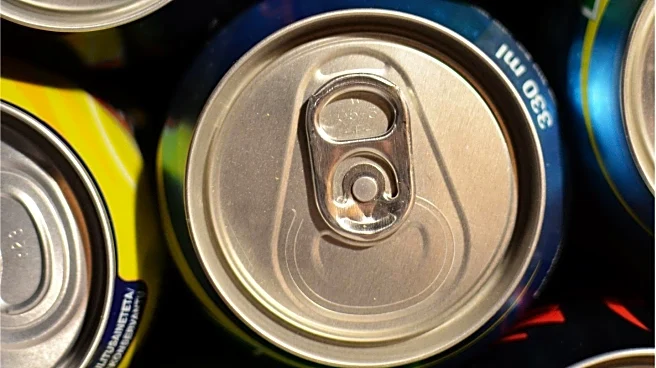What's Happening?
Energy drinks, marketed with enticing flavors and high caffeine content, are under scrutiny for their potential health risks, particularly concerning liver health. Experts highlight that these drinks often contain excessive caffeine, added sugars, and supplemental
ingredients like vitamins and herbs, which can strain the liver. While occasional consumption may not be harmful, regular intake could lead to liver injury over time. The U.S. Food and Drug Administration (FDA) recommends adults limit caffeine intake to 400 milligrams per day, but energy drinks can contain up to 250 milligrams per 12-ounce serving. Additionally, the high sugar content in these drinks can contribute to nonalcoholic fatty liver disease (NAFLD).
Why It's Important?
The rising popularity of energy drinks poses significant public health concerns, particularly for liver health. As these drinks are often consumed by young adults and teenagers, the potential for long-term health issues is substantial. The liver, being the body's primary detoxification organ, can be overwhelmed by the high levels of caffeine and sugar, leading to conditions like NAFLD. This highlights the need for increased awareness and regulation of energy drink consumption, especially among vulnerable populations. The potential health risks underscore the importance of promoting healthier alternatives and educating consumers about the dangers of excessive energy drink consumption.
What's Next?
As awareness of the potential health risks associated with energy drinks grows, there may be increased calls for regulatory action. This could include stricter labeling requirements, limits on caffeine content, and public health campaigns to educate consumers about the risks. Health professionals may also advocate for more research into the long-term effects of energy drink consumption on liver health. Consumers are encouraged to consider healthier alternatives, such as coffee or tea, which offer energy-boosting benefits without the high levels of sugar and caffeine found in energy drinks.
















